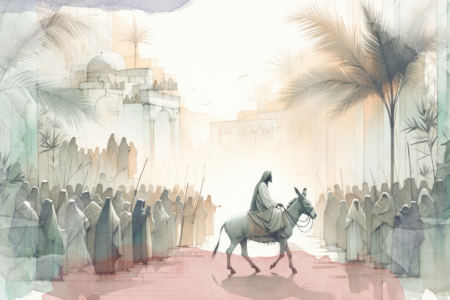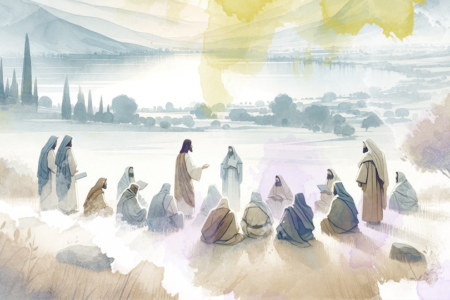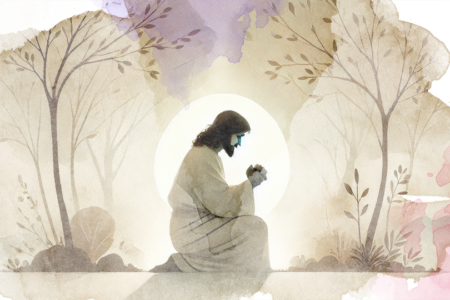The Life, Times And Message Of Isaiah The Prophet PART XXII
ISAIAH, CHAPTERS 18-20
IMPERILLED ETHIOPIA SEEKS ALLIES
1 O, land of the buzzing of wings,
Which is beyond the rivers of Ethiopia
2 That sends ambassadors by the sea,
In vessels of papyrus upon the face of the waters.
Go, ye swift messengers,
To a nation tall and smooth,
To a people feared near and far,
To a mighty nation and victorious,
Whose land rivers divide.
3 All ye inhabitants of the world,
And ye who dwell on the earth,
When you see a standard raised on the mountains, look!
And when the trumpet is sounded, listen!
4 For thus said the LORD unto me:
I will be quiet and look on in my abode,
Like the bright heat in the sunshine,
Like a cloud of dew in the heat of harvest.
5 For before the harvest, when the blossom is ended,
And the bud becomes a ripening grape,
He will cut off the shoots with pruning knives,
And the branches He will take away and lop off.
6 They shall be left together to the birds of prey of the mountains,
And to the beasts of the earth;
And the birds of prey shall feed on them in the summer,
And the beasts of the earth shall feed on them in the winter.
7 At that time there shall be brought gifts to the LORD of hosts,
From a people tall and smooth, and from a people feared near and far;
From a nation mighty and conquering, whose land the rivers divide,
To the place of the name of the LORD of hosts., Mount Zion. A.T.
Comment:
Isaiah chapters 18-20 form a remarkable prophecy which deals with the destiny of Ethiopia, Egypt, Assyria and Judah. Here Isaiah reaches the pinnacle of prophetic universalism, unsurpassed anywhere else in the Old Testament. Isaiah foretells the downfall of Israel’s hereditary enemies, Egypt and Assyria, but goes on to predict that in the end both nations shall come to know the LORD, and together with Israel they shall worship Him and be reconciled to Him and to each other. This prophecy is particularly striking in the light of the ongoing and unresolved conflict between contemporary Israel and the Arab lands of today.
The historical background of chapters 18-20 is set against the political events of the last two decades of the 8th century B.C.
Around the year 720 B.C., Ethiopia, taking advantage of the internal problems of Egypt, conquered that land and became master of the Nile River for the next sixty years. Shabaka, the Ethiopian ruler of Egypt (circa 716-701 B.C.), expecting an Assyrian invasion of the Nile River, sent ambassadors to the various provinces of Egypt and to neighboring kingdoms, seeking to enlist their support against Assyria in the event of war.
1-2 The people who sent their ambassadors in search of allies are not specifically mentioned by name. We are only informed that they lived beyond the rivers of Ethiopia, or along the valleys of the Blue and White Nile. It is the land of “the buzzing of wings.” The Hebrew word “tsilsal”—to buzz—has suggested to most commentators the deadly “tse-tse” fly, in which the area “beyond the rivers of Ethiopia,” that is the Upper Nile and its tributaries abound. Today this area forms a part of modern Egypt, Sudan and Ethiopia.
The ambassadors travel in light and swift papyrus boats along the tributary rivers of the Nile, which in Egyptian literature is sometimes called “the sea.” The destination of the ambassadors is to a people described as “tall and shining,” or “of smooth skin” who inspire great fear among their neighbors. Many commentators understand this to be a reference to the tall and well built Nubians, or the Watusi tribes, which inhabited the regions of the Upper Nile.
3 The ambassadors are to alert these people to be ready for an outbreak of hostilities between the Ethiopio-Egyptian dominion and the Assyrians.
Some Jewish commentators believed that the Ethiopian ambassadors were actually sent to Jerusalem in search of military help. However, our text does not warrant this conclusion.
4-6 Isaiah, addressing himself to the ambassadors, and indirectly to Israel and the nations of the world, makes known what the Lord Himself had revealed to him concerning the impending Assyrian invasion. The Lord will, for a time, hold His peace and permit the situation to take its natural course. But when the Assyrians will seem to have victory in their grasp, He will suddenly and violently destroy their evil power. The seeming inaction of God does not indicate His indifference, but that He is waiting for the situation to mature and then His terrible judgement will certainly follow. This is described in verses 5-6.
The prediction of the downfall of Assyria may be related to the disaster which befell Sennacherib in 701 B.C. at the siege of Jerusalem, as described in Isaiah 37:36-38.
7 When the LORD will manifest His power over Assyria, Ethiopia and the very people to whom she sent ambassadors to seek their support, will recognize that their ultimate salvation must come from Jehovah, the LORD of all nations. Ultimately to Him alone will all people bring their gifts of adoration, to Him who dwells on Mount Zion.
Isaiah gives expression to his faith that Jehovah is the supreme ruler of all nations, and not alone of Israel, and that at the end every knee shall bow before Him in worship and adoration.
On the level of “practical politics” Isaiah remains faithful to his God-centered view of history and so counsels his people to abstain from foreign alliances, no matter how attractive these may seem at the moment, but to look to Jehovah Himself for their protection and ultimate redemption.
Isaiah 18 thus forms an introduction to chapter 19, which deals with the future destinies of Egypt, Israel and Assyria and their mutual relationship to one another and to the LORD Himself.
ISAIAH, CHAPTER 19
JUDGMENT UPON EGYPT AND HER REDEMPTION
Verses 1-15 Egypt Shall Be Torn By Civil Strife and Ruled By a Foreign Tyrant
1 The burden of Egypt.
Behold the LORD rides upon a swift cloud
And is coming to Egypt.
And the idols of Egypt will shake at His presence,
and the heart of Egypt shall melt within it.
2 And I will incite Egypt against Egypt
And a man shall fight against his brother,
And a man against his neighbor,
City against city, kingdom against kingdom
And the spirit of Egypt shall be confused within her
And I will confound their counsels.
3 And they shall consult idols and wizards,
The ghosts and the familiar spirits.
4 And I will deliver Egypt into the hand of hard masters,
And a cruel king shall rule over them.
5 And the waters shall fail from the sea,
And the river shall be drained dry.
6 And the canals shall become foul,
And the river branches of the Nile shall dwindle and dry up,
The reeds and the rushes shall wilt away.
7 The meadows by the Nile, at the edge of the Nile,
And all that which is planted by the Nile,
Shall dry up, shall be driven away and be no more.
8 And the fishermen shall lament!
And all they that cast the hook in the Nile shall mourn,
And they that spread nets upon the waters shall languish.
They that work in combed flax and weavers of cotton
Shall be confounded.
10 And the foundations shall be crushed,
And the wage earners shall be grieved in spirit.
11 Mere fools are the princes of Zoan!
The wise counselors of Memphis give foolish counsel.
How say you to Pharaoh:
“I am the son of wise men, the son of ancient kings?”
12 Where then are thy wise men?
Let them tell thee now, let them inform thee,
What the LORD of hosts has purposed against Egypt!
13 The princes of Zoan have become fools,
The princes of Memphis are deceived.
They have led Egypt astray,
They who are the cornerstone of the tribes.
14 The LORD has poured out in her midst a spirit of confusion,
15 And there shall be no work which Egypt can do,
They have caused Egypt to stagger in all her doings,
As a drunk staggers in his vomit.
And there shall be no work which Egypt can do,
for head or tail, of palm branch or rush. A.T.
Comment:
In this prophecy which indicates an intimate knowledge of Egypt, Isaiah predicts the judgment which is about to come upon this land, in whom the politicians of Judah put so much confidence to help them against their common enemy, Assyria.
1 Behold the LORD rideth upon a swift cloud. . . .
A figure of speech indicating that God is about to perform judgment. At His Presence, all the idols of Egypt, which, in fact, are “elilim”—”contemptuous nothings” will be shaken and toppled. This will result in public confusion and widespread civil war.
2 I will incite Egypt against Egypt, a man against his neighbor —
Normally, the two main parts of Egypt, Upper and Lower, were under the same ruler, Pharaoh, but now there will be chaos, anarchy and civil strife.
3 The traditional form of religion shall fail. The people will resort to magic, wizardry, spiritism, those dark forms of superstition which always lurk in the background of popular feelings, ready to take over, whenever the established form of religion fails.
4 As a result of Egypt’s internal chaos, she will fall prey to a cruel, foreign taskmaster. It is difficult to establish whom Isaiah had in mind as “the harsh foreign king.” Esarhaddon (681-669), Cambyses (530-522) and others have have been suggested. It is possible that the prophet did not allude to any specific foreign invader, but to the eventual decline of Egypt as a world power.
5 The worst of Egypt’s plagues which the Lord has in store for this unhappy land will be the failure of the river Nile, the fountain spring of Egypt’s economy, to provide her life giving waters. The results of this natural calamity are described in the following lines, which bring to mind the plagues of Egypt in the days of Moses: first, the river Nile, referred to as “the sea,” shall dry up.
6 Then the streams and the canals shall become putrid.
7 All the vegetation which depends on the Nile waters shall dry up and vanish.
8 The whole fishing industry, by hook or by net, shall cease, bringing hunger and dismay to the fishermen and to the whole population.
9 The famous linen and cotton industry of Egypt which provided the finest woven manufactures of the ancient world shall come to a standstill, causing dismay among the combers and weavers (and incidentally to the shipping industry engaged in export).
10 The foundations of the land—the rich landowners and industrialists and the common wage earners shall be grieved in spirit.
11-14 Isaiah taunted those vaunted wise men of Egypt, the counselors of Pharaoh who advised him on the affairs of state. Why did they not inform the king what God has planned for their land? Those wise men of Zoan (ancient Tanis in the Nile Delta and Memphis, were the representative cities of Egypt), turned out to be mere fools. (v. 11)
12 Why did they not inform the king about Jehovah’s purpose for Egypt? Because they did not know. Isaiah apparently alludes to other days, and to another man, who did know and who was able to give the king right counsel. He was the Hebrew slave Joseph, who had the spirit of true knowledge and prophecy and so could advise Pharaoh to take the right steps to forestall disaster.
13 However, the present leaders of Egypt lead Egypt astray.
14 Because the Lord has poured out upon them, not a spirit of wisdom and knowledge, but of utter confusion. When disaster strikes, they stagger and wallow in their own vomit, the excretion of their own deluded minds.
15 There shall be no work in Egypt. This sums up the magnitude of the calamity which shall befall Egypt. This total economic stagnation and lack of productive work will affect all the classes of Egypt. The rich and powerful is “the head”—the unskilled laborer who depends on his daily wages to survive, is “the tail.” There simply will not be any material to work with—palm branch or rush.
The conditions described in this passage are so strikingly analogous to the situation which prevails from time to time in some of our own industrial countries, causing grave economic crises and general dismay.
16-25 The LORD Shall Smite
16 In that day shall Egypt be like women, and it shall tremble and be afraid because of the shaking of the hand of the LORD of hosts which he shakes over them.
17 The land of Judah shall become a terror to Egypt, every one to whom it will be mentioned shall be afraid because of the purpose of the LORD of hosts which He purposes against it.
18 In that day there shall be five cities which will speak the language of Canaan and swear to the LORD of hosts, one of these shall be the City of the Sun.
19 In that day there shall be an altar to the LORD in the midst of the land of Egypt, and a pillar to the LORD at the border.
20 And it shall be for a sign and a witness to the LORD of hosts,
And when they shall cry to the LORD of hosts because of oppressors,
He will send a Saviour, Who will defend and deliver them.
21 And the LORD shall make Himself known to Egypt and the Egyptians shall know the LORD in that day and they shall worship Him with sacrifice and offering and they shall vow unto the LORD and shall perform it.
22 And the LORD shall smite Egypt, smiting and healing, and they shall return unto the LORD and He will be entreated of them and will heal them.
23 In that day there shall be a highway out of Egypt to Assyria, and the Assyrians shall come into Egypt and the Egyptians to Assyria. And the Egyptians shall worship with the Assyrians.
24 In that day shall Israel be the third with Egypt and with Assyria, a blessing in the midst of the earth.
25 Whom the LORD of hosts shall bless, saying: Blessed be my people Egypt and Assyria, the work of my hands, and Israel my heritage. A.T.
Comment: Verses 16-25
In this passage we hear echoes of the exodus story; when the Lord sent plagues upon Egypt in order to deliver His people Israel. However, this time God will smite Egypt in order to heal her and to make her together with Assyria and with Israel His very own people. Here Isaiah reaches the pinnacle of prophetic vision which embraces the redemption not only of Israel but also of those nations which in the past were the enemies of God and of His people. In Isaiah 2:2-4 the prophet gave us a grand vision of the nations walking in the light of Israel’s God. Here the ancient enemies of Israel and of Israel’s God are depicted as coming into a close relationship with Jehovah and together with Israel, fellow-heirs of the Kingdom of God.
The process of Egypt’s conversion is gradual: At first, Egypt trembles like women before the extraordinary acts of Jehovah. (v. 16) Because Judah is the land of His visible habitation and presence, it becomes the object of fear. No doubt, the memory of what the Lord did to Egypt many centuries before when He delivered Israel, is an element in this fear. (v. 17)
18 Five cities in Egypt shall speak the language of Canaan. . . .
According to the Greek historian, Herodotus, there were no less than 20,000 cities in densely populated Egypt. The five cities speaking “the language of Canaan,” which later became the language of Judah, and of true worship, indicates that a small part of Egypt will turn to the Lord and worship Him. “To swear to the Lord” is a term indicative of allegiance to and faith in Jehovah.
One of these cities shall be called City of the Sun. In Hebrew, it is Yir-ha-heres, which the King James Version translates as “the city of destruction.” Many ancient Hebrew manuscripts read “the city of the Sun” (ha-cheres), which is Heliopolis, one of the oldest cities in the Nile Delta. To refer to “the City of the Sun” as “The City of Destruction” is typical of the prophets as a mark of contempt for the heathen idols. Hosea called Bethel—”The House of God __ Beth-aven __ “The House of Iniquity.” (Hosea 4:15) pillar also dedicated to Jehovah will be clear signs that Egypt belongs to the God of Israel.
19 The altar in the midst of Egypt dedicated to the worship of the Lord and the border pillar also dedicated to Jehovah will be clear signs that Egypt belongs to the God of Israel.
Josephus reports that the priest Onias IV in the year 154 B.C. built a Temple in Leontopolis dedicated to the worship of Jehovah which rivalled in magnificence the Jerusalem Temple.1′ Onias and the Egyptian Jewish colony justified their action on the basis of Isaiah 19:19.
20 When they shall cry to the Lord because of oppression . .
Long ago, Israel was oppressed in Egypt and they cried unto the Lord because of oppressors. Then He sent a Saviour to deliver them. Now Egypt will be oppressed in her own land and the Lord will send her a Saviour to deliver her, just as He once delivered Israel.
21 Even as Israel came to know the Lord as a result of her deliverance Egypt too will come to know the Lord. This time Egypt will serve the Lord with sacrifice and offering, and will also keep their vows to the Lord. This will be in contrast to former days when Egypt vowed to the Lord to set Israel free, but did not keep her vows.
22 The LORD shall smite Egypt and heal her.
In former days Egypt was smitten, but she was not healed. Now her affliction shall lead to repentance and to healing.
23-25 Here is one of the most sublime visions ever predicted by a prophet and seer. In verse 23, the two rival empires and enemies of Israel, which throughout their history sought to swallow up each other and to impose their will upon each other, will become reconciled and close partners in commerce and in worship of the Lord. The highway from Egypt to Assyria is symbolic of their new relationship to each other and to the Lord (v. 23).
24 Israel shall be a third with Egypt and Assyria.
Little Israel caught between the Egyptian anvil and the Assyrian hammer, was the perennial victim of the depredations of both powers. Isaiah sees the time coming when Israel shall be a partner and ally of her former foes, and together, they will become a blessing to all the inhabitants of the earth. The promise which the Lord once made to Abraham will at last be fulfilled, “and in thee shall all the families of the earth be blessed.” Genesis 12:3b
25 This is one of the most glorious lines in all of the Old Testament scripture: Pagan Egypt is to become just like Israel “My people”—God’s people. Assyria, the most bloodthirsty, ferocious kingdom which human cruelty has ever established, shall become a nation of whom a Holy God will be able to say with joy: “the work of my hands.” As for Israel, she will at last be what God always intended her to be: Israel my heritage, the inheritor and the blessed carrier of His holiness, His righteousness and His love for all of mankind.
Obviously, this sublime prophecy has not yet been fulfilled. Assyria, as a nation, has completely disappeared from the historical horizon. The Egypt of modern times is only very remotely related to the Egypt of antiquity. Can this prophecy ever be fulfilled? God’s promise through His prophet Isaiah answers emphatically “yes.”
While ancient Assyria and Egypt have disappeared, the successor nations of those two empires which embrace much of the contemporary Arab and Muslim world are still alive, and are, together with Israel, in the very center of is troubled and perplexed world. After three millenia, they are still engaged in bitter conflict with one another. However, this glorious and, as yet, unfilled promise holds out a bright hope of eventual reconciliation to the nations of the earth. Such is the vision of the prophet.
For this prophecy to become a reality, another prophecy of Isaiah concerning The Prince of Peace must first be fulfilled. He must sit upon the throne of His father, David, and establish His glorious kingdom of justice, of righteousness and peace. (Isaiah 9:6-7)
ISAIAH 20:1-6
ISAIAH WALKS THE STREETS OF JERUSALEM NAKED
1 In the year that Tartan came to Ashdod, when Sargon, king of Assyria sent him, and he fought against Ashdod and subdued it.
2 At that time the LORD spoke through Isaiah the son of Amoz saying: “Go and loosen the sackcloth from off thy loins and thy shoe from off thy foot.” And he did so, walking naked and barefoot.
3 And the LORD said: Even as my servant Isaiah walked naked and barefoot for three years as a sign and a wonder against Egypt and Ethiopia
4 So will the king of Assyria lead away the captives of Egypt and the exiles of Ethiopia, the young and the old, naked, barefoot and with uncovered buttocks, to the shame of Egypt.
5 And they shall be dismayed and ashamed because of Ethiopia their expectation and of Egypt their glory.
6 And the inhabitants of this coast land shall say in that day:
Behold such is our expectation, to whom we fled for help to be delivered from the king of Assyria: and how shall we escape? A.T.
Comment:
1-2 Presents the historical circumstances of Isaiah’s astonishing action in walking about publicly naked and barefoot for a period of three years. It happened when Tartan (which is not a name but the title of the chief of staff of the Assyrian forces) was sent by Sargon (722-702 B.C.), king of Assyria, to subdue the Philistine city of Ashdod, after they refused to pay the annual tribute. This took place in 711 B.C. The conquest of Ashdod, an exceedingly strong fortress, was also to be a preliminary campaign in Sargon’s plan to conquer Egypt. The fall of Ashdod and the close proximity of a mighty Assyrian army sent shivers down the spine of Hezekiah, king of Judah. He, therefore, was considering an alliance between Judah and Egypt, then ruled by an Ethiopian dynasty, under Pharaoh Shabaka, against their common enemy, Assyria.
At that time the Lord gave Isaiah the strange command to take off his coarse sackcloth coat and sandals, the usual garment of mourners (1 Kings 21:27, 2 Kings 6:30), and of prophets (2 Kings 1:8; Zech. 13:14; Matthew 3:4).
3 Walking naked and barefoot.
It was usual for mourners to wear under the sackcloth some sort of shirt, so that stripping oneself of the sackcloth did not mean complete nakedness, but only comparatively speaking. The Lord would never have commanded His prophet to walk about “stark naked,” since this would be an indecent act. Yet for Isaiah to walk about publicly in his undershirt called for a great measure of self-humiliation, especially for a prominent person of Isaiah’s stature and aristocratic background.
Isaiah’s “nakedness” was to be a sign and wonder, that is, a symbolic act of what the Lord has purposed for Egypt and Ethiopia: defeat and extreme humiliation.
4 Defeated and disgraced, the Egyptian and Ethiopian captives shall be dragged into captivity
in the usual degrading manner of the Assyrians, even less attired than “naked” Isaiah.
5-6 The sight of the wretched captives will cause Judah to realize how illusory was their expectation to be rescued from Assyria by Egypt and Ethiopia.
5-6 The sight of the wretched captives will cause Judah to realize how illusory to be rescued from Assyria by Egypt and Ethiopia.
In Sargon’s palace in Khorsabad, an inscription was discovered in which the Assyrian king boasted that he fought against Sebech (Shabaka, the Ethiopian ruler of Egypt) and forced him to pay tribute.
Apparently Isaiah’s symbolic action drove home his point and Hezekiah, in spite of all allurements, did not ally himself with Egypt.
Once more Isaiah was able to save his people, at least for a short period of time, from putting their trust in the broken reed, Egypt.







